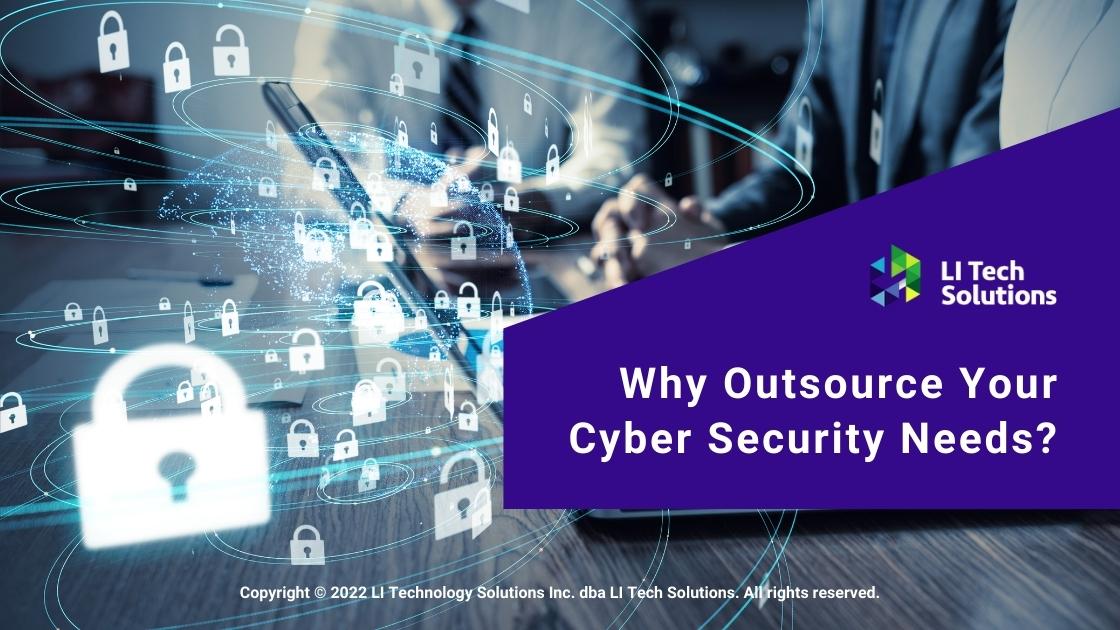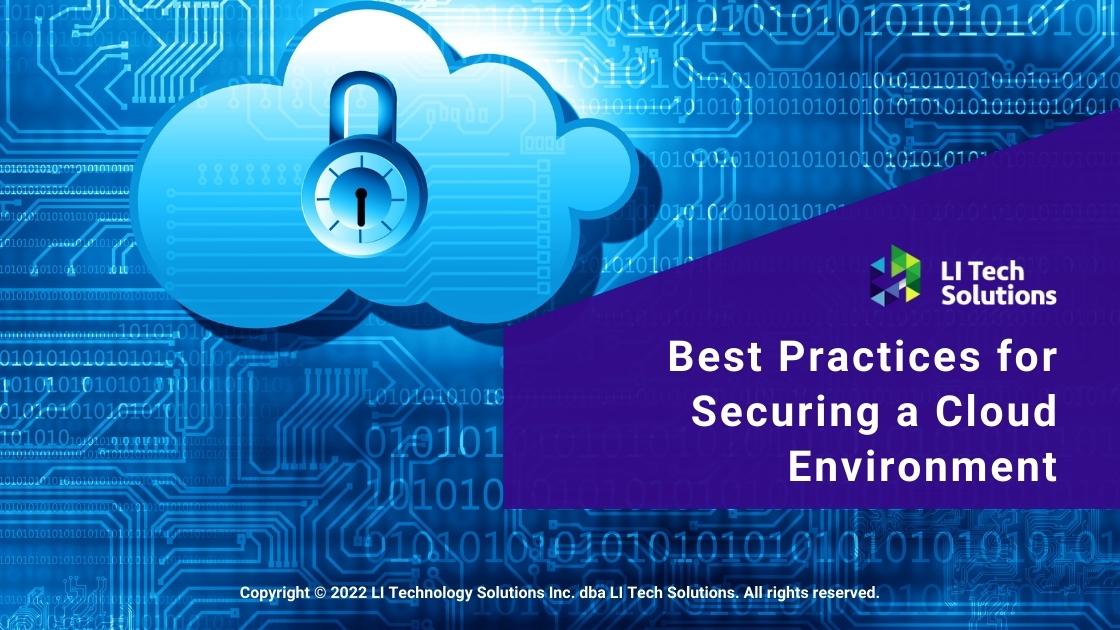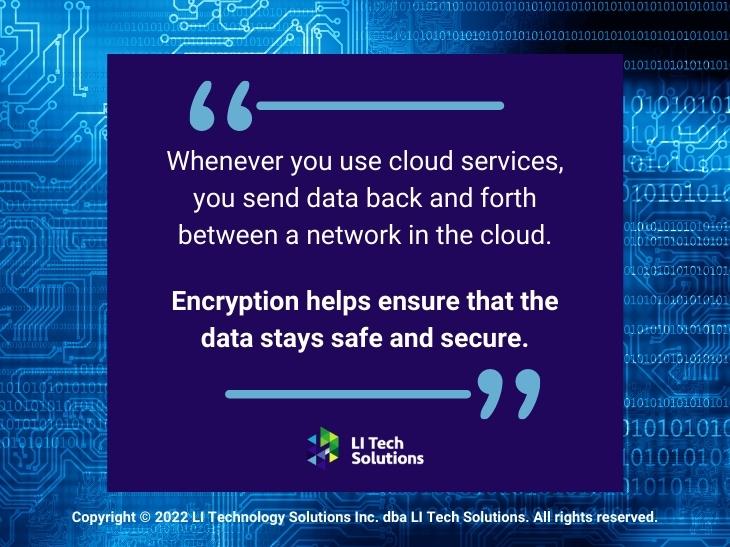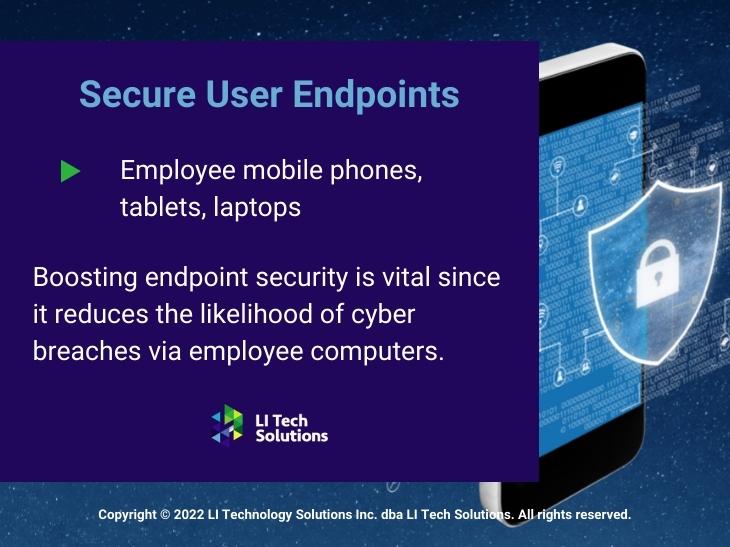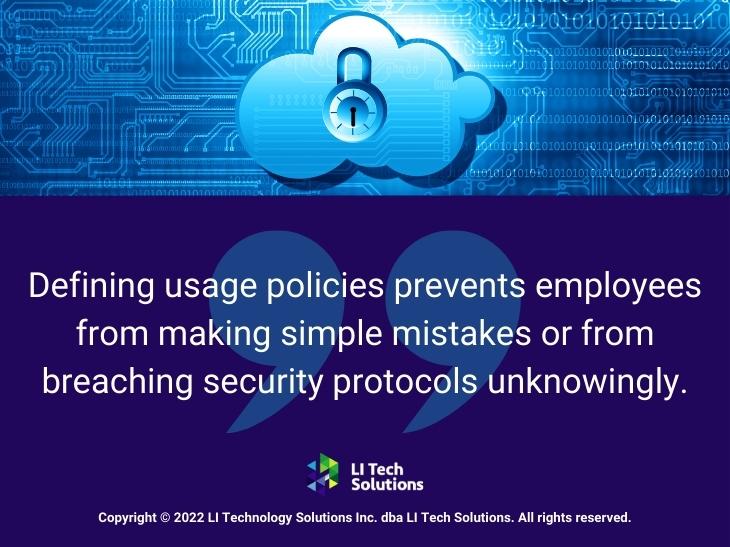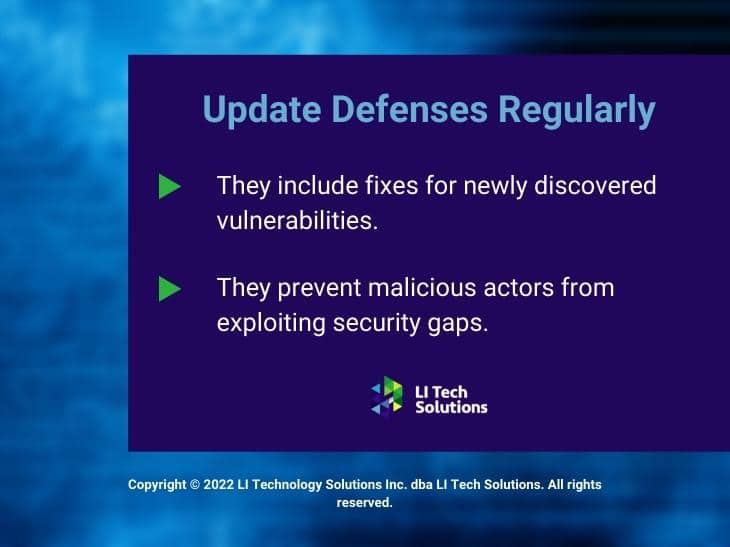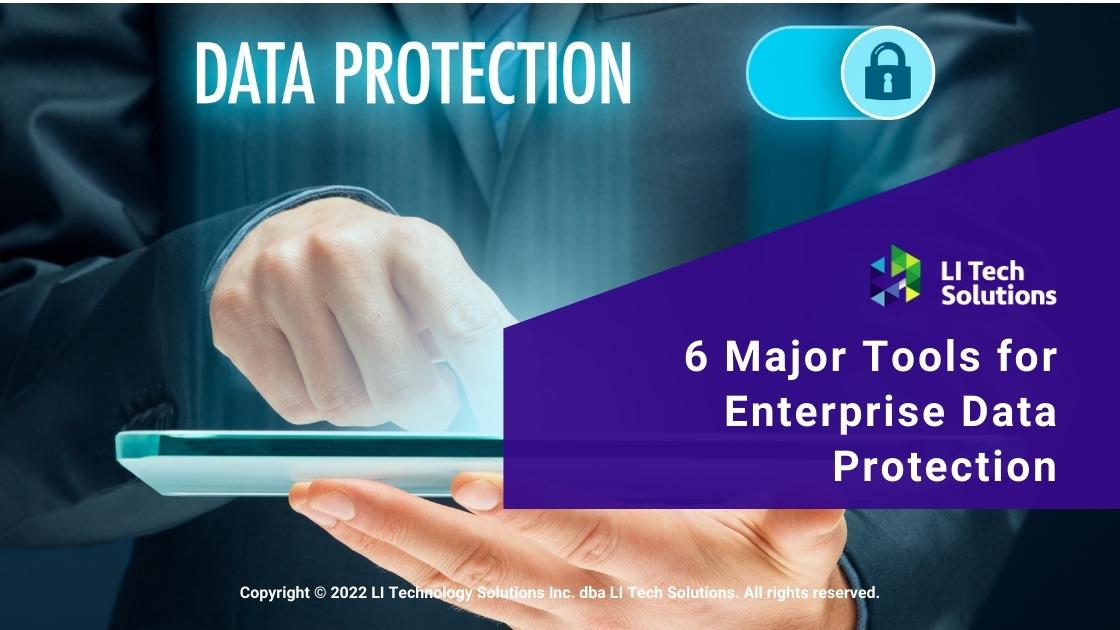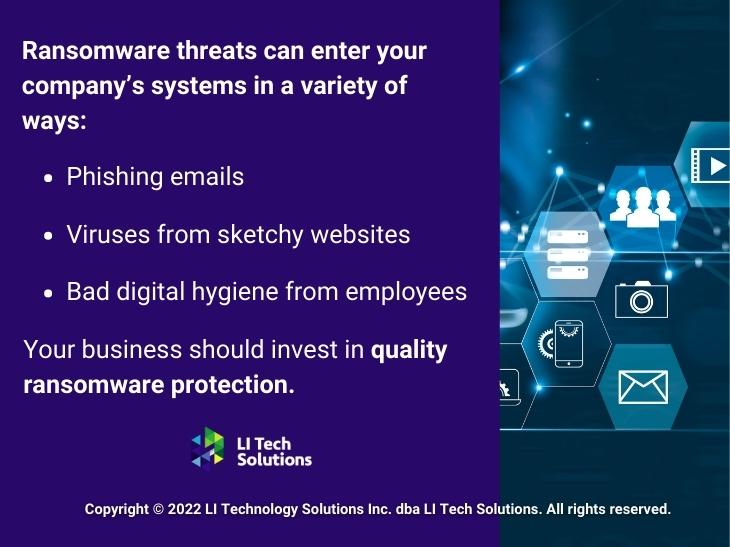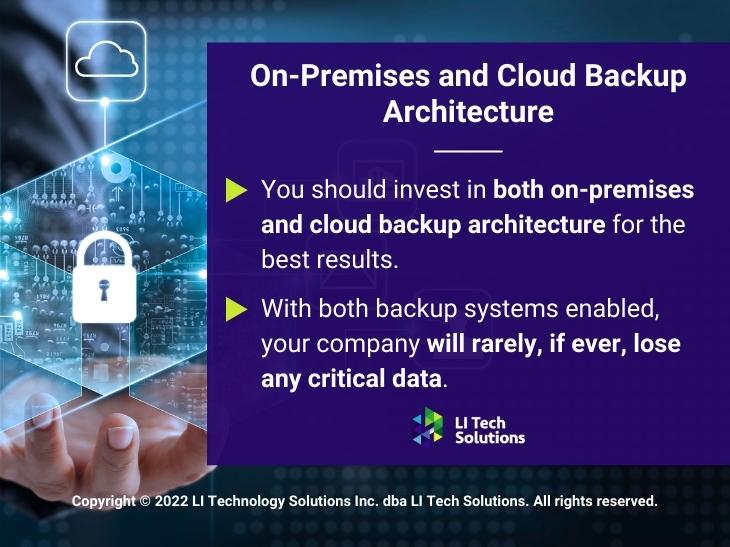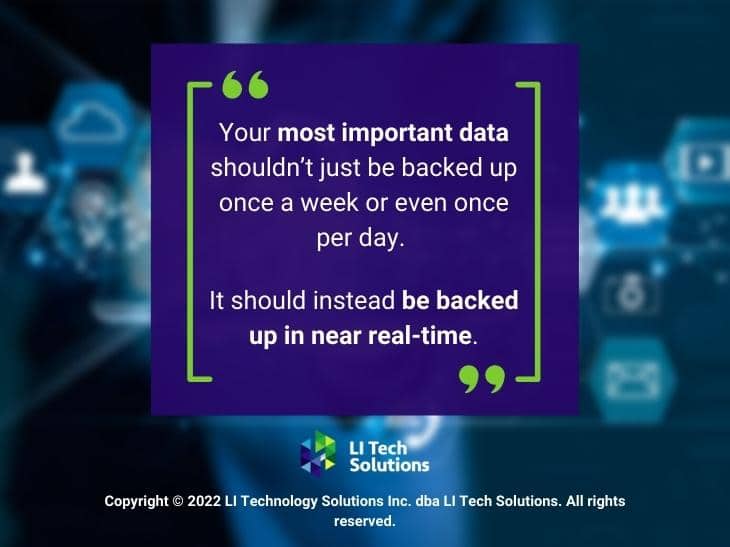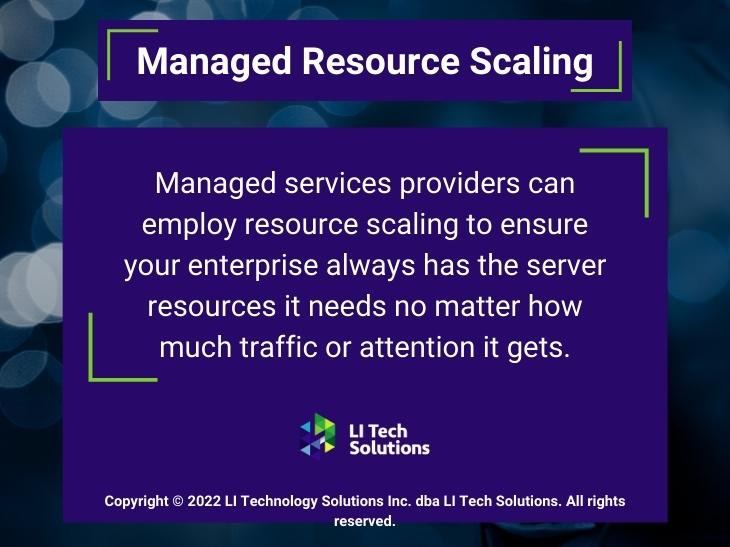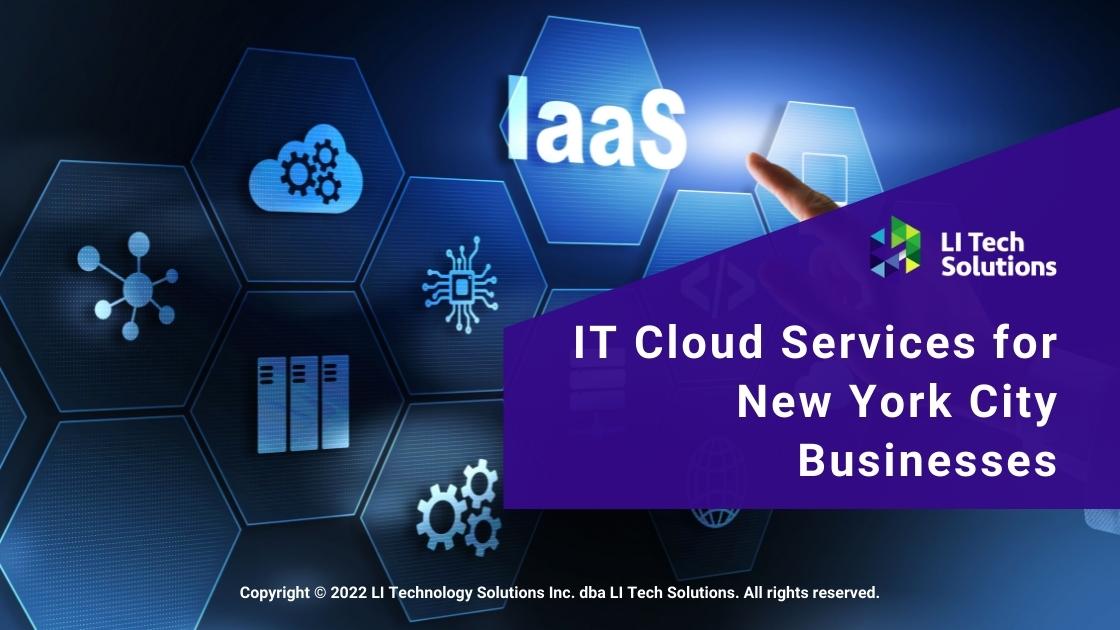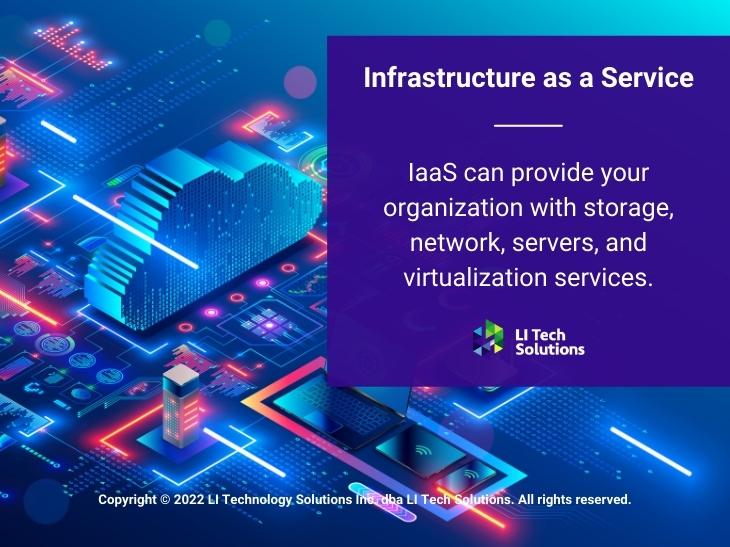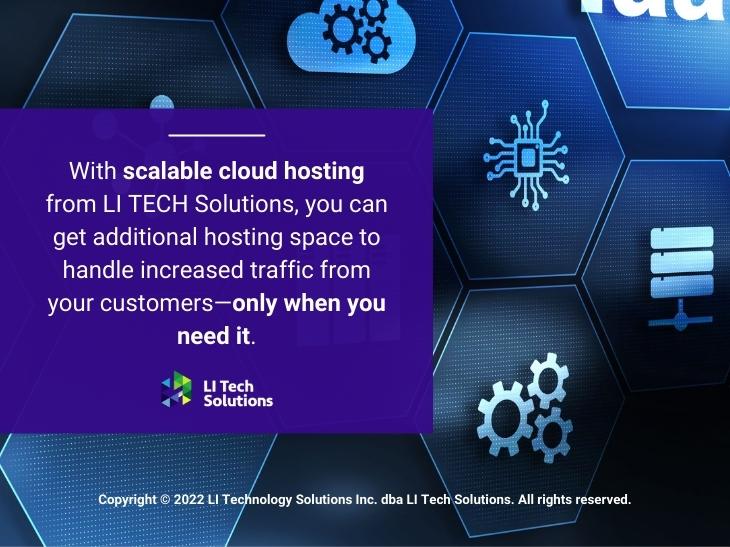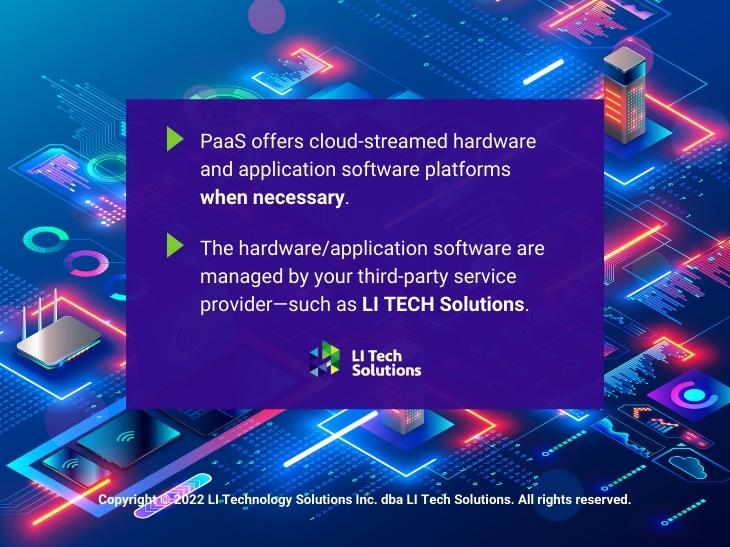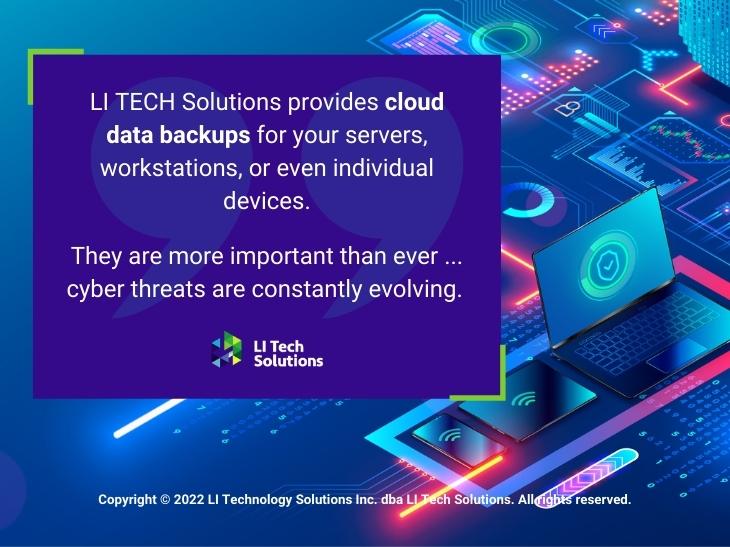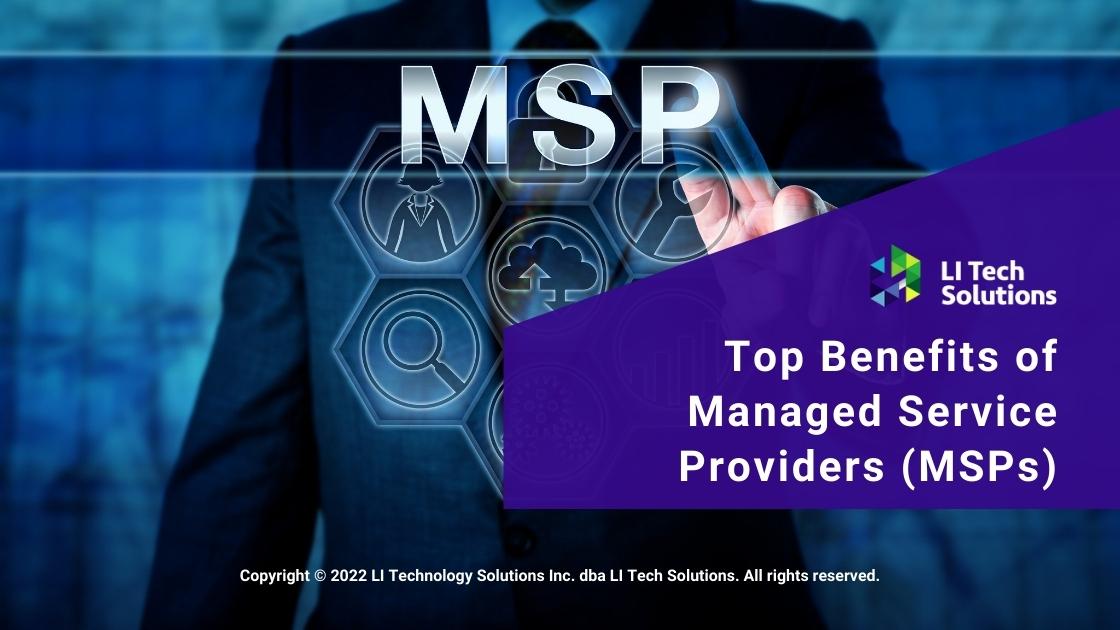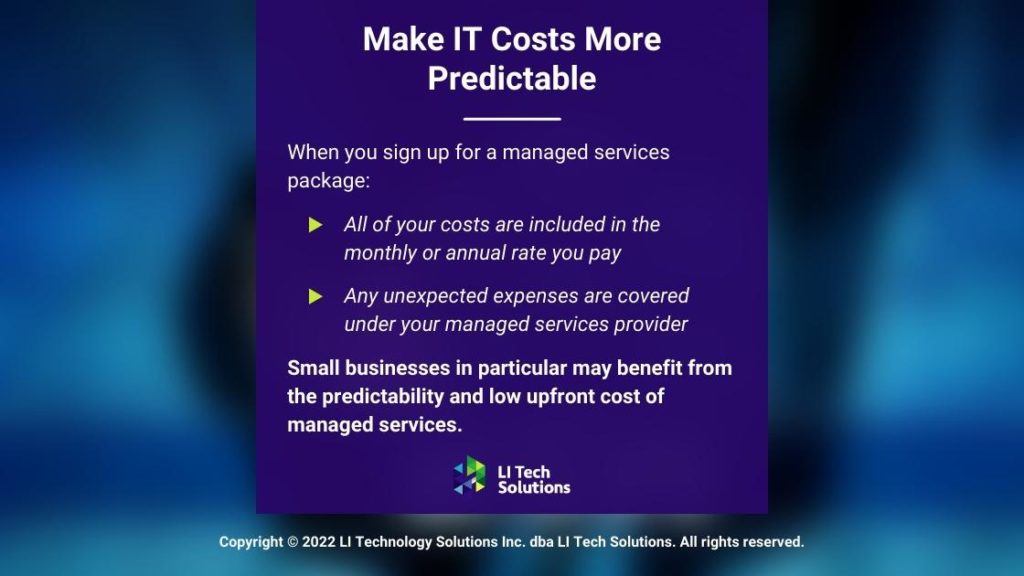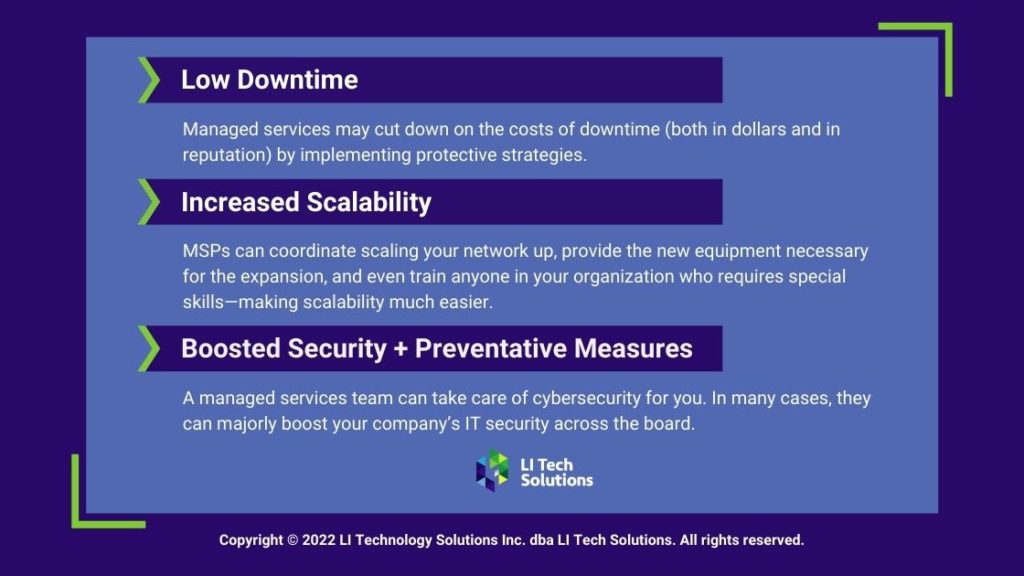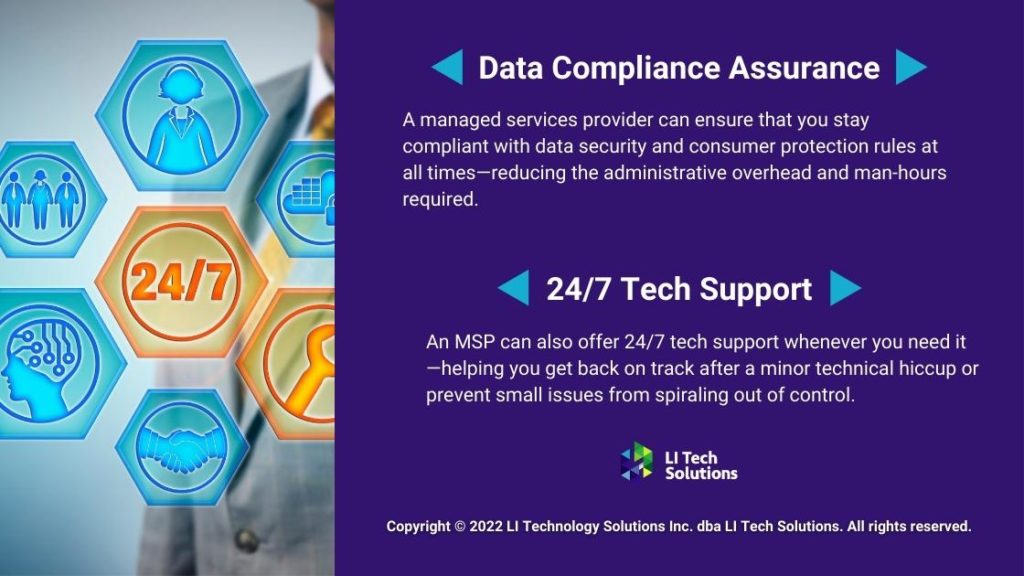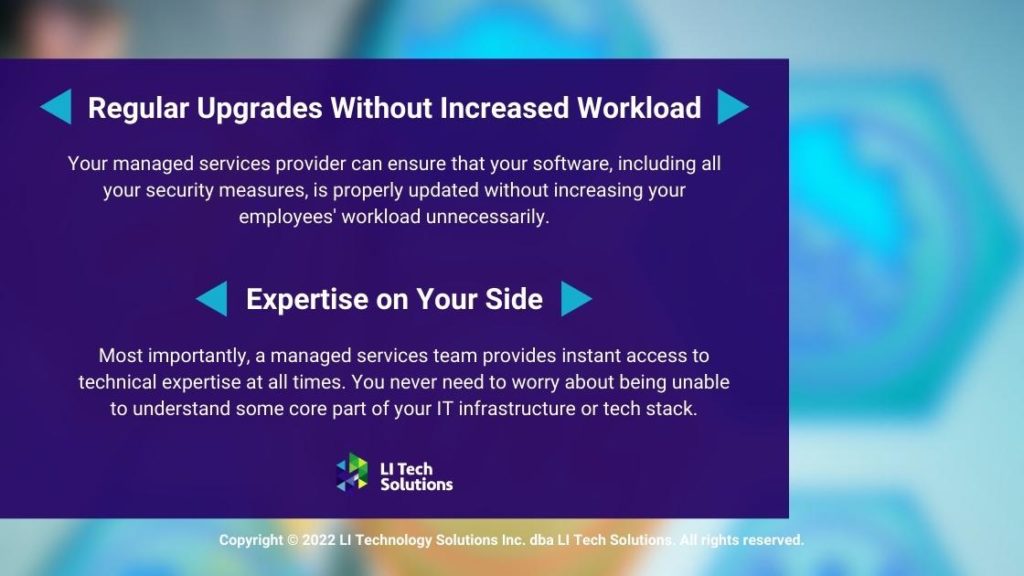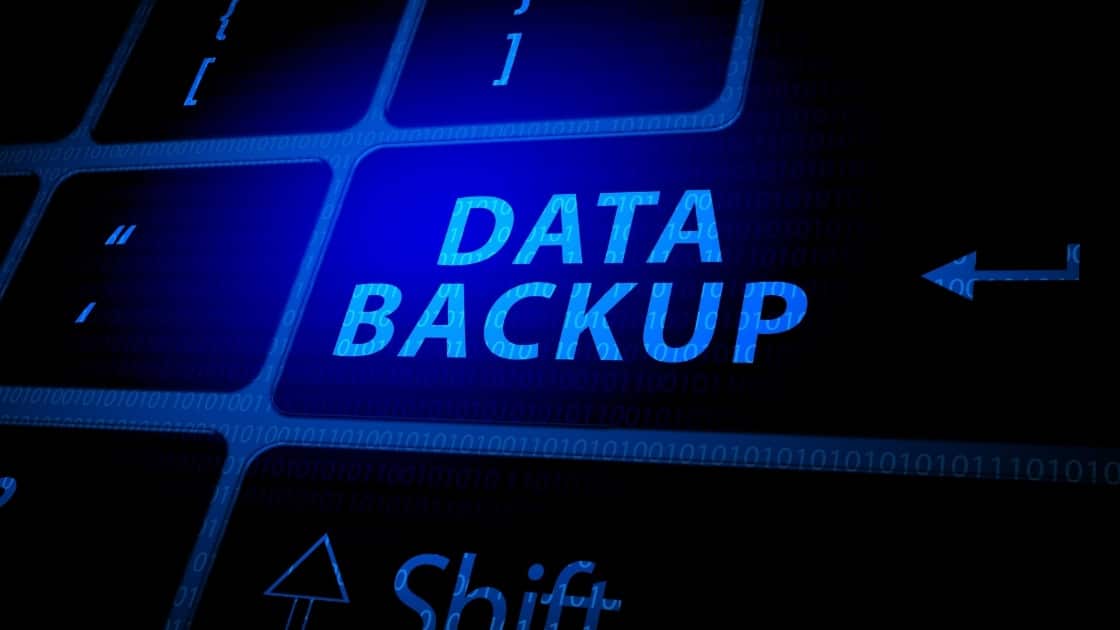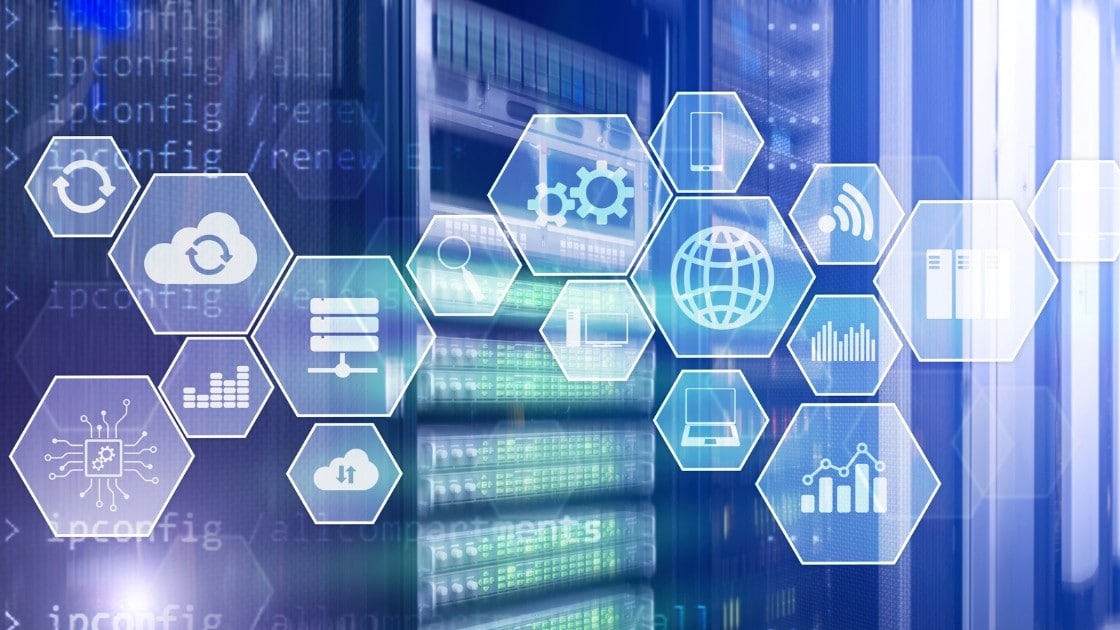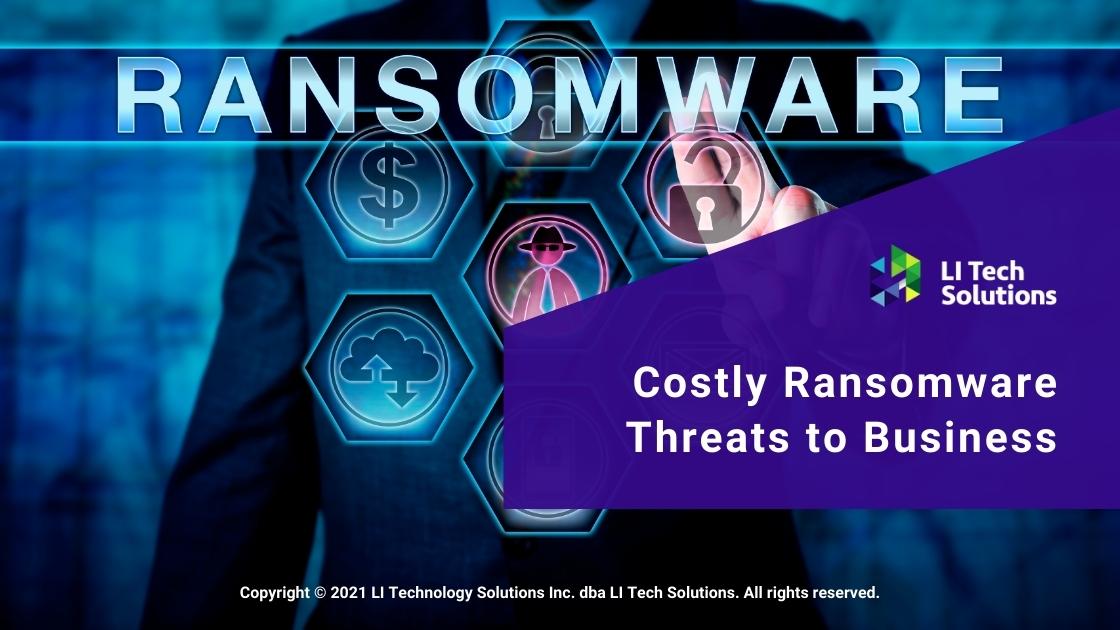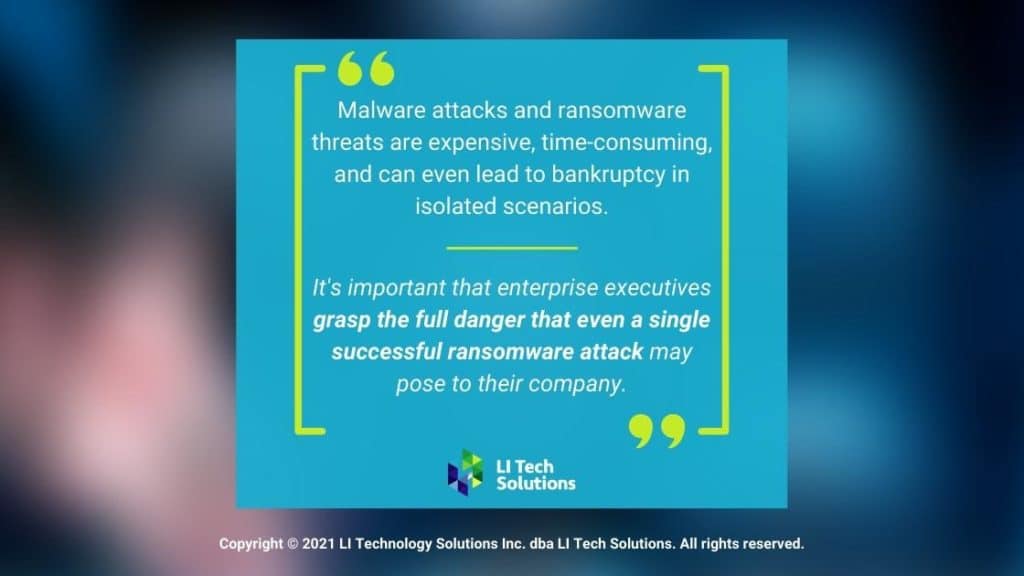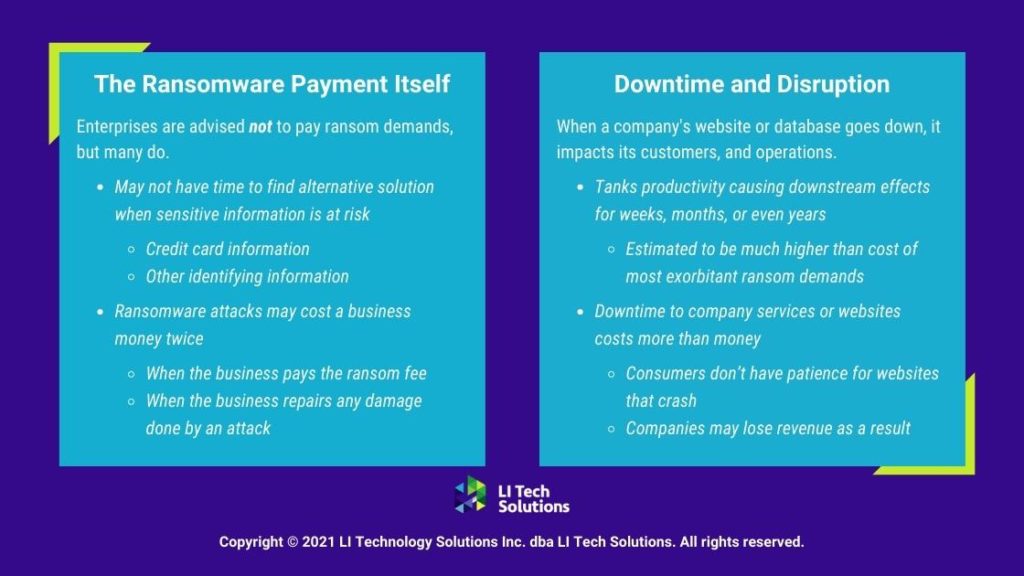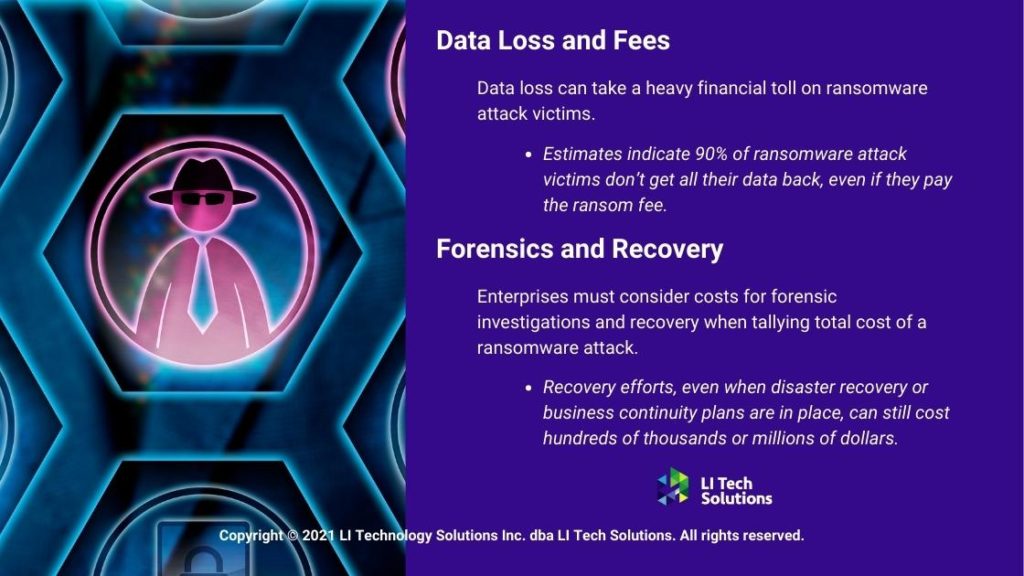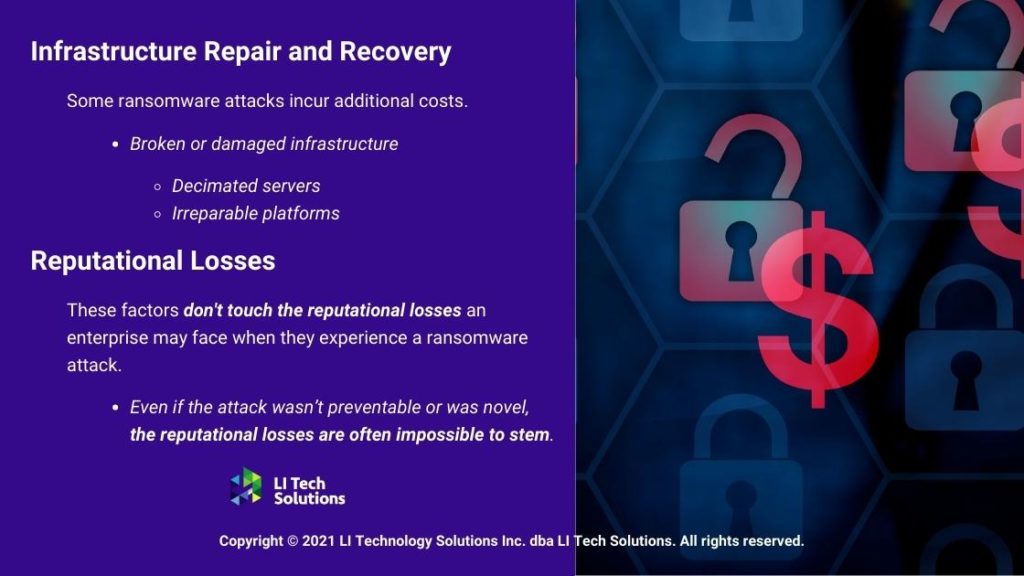Why Outsource Your Cyber Security Needs?
Modern cyber security is more important than ever, but it’s also more expensive and resource-intensive. These days, many companies find it tough to maintain in-house IT or cyber security departments, especially if they aren’t focused on cyber security themselves. There may be an alternative solution: outsource your cyber security needs. Today, let’s break down the benefits of outsourcing cyber security to managed service providers like LI Tech Solutions.
More Predictable Costs | Long Island Tech Solutions Explains How:
For starters, outsourcing your cyber security may lead to more predictable – and therefore manageable – costs for online security. When your in-house team handles cyber security, they’ll produce bills sporadically for things like software updates, training the team on new initiatives, and for purchasing new security products.
If you pay a flat, regular fee to a managed service provider, your cyber security costs are more predictable. For smaller companies or organizations whose budgets are already thin, this can be a major benefit.
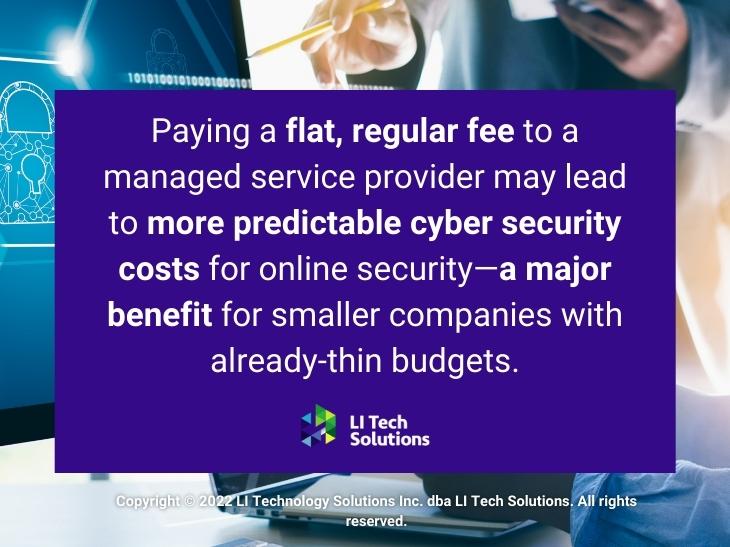
Regular Updates and Improvements
Furthermore, outsourcing your cyber security needs to a managed service provider may help you benefit from more regular security updates and improvements.
Malware evolves constantly, so security efforts must also evolve in tandem with cyber threats. This is often accomplished through updates and patches. But it can be tough for your team, especially if they have other things to juggle, to remember these updates and shore up your cyber defenses regularly.
A managed services provider will ensure that cyber security software is updated when needed and improvements are implemented ASAP. In this way, your business will use the most appropriate digital security at all times. But your team won’t have to worry about it since these concerns will be handled by your managed services squad.
Refocused Productivity
By freeing up that manpower in your team, you’ll be able to refocus the extra productivity on other elements of your business, including product design and development, marketing, or something else entirely. It’s up to you!
That refocused productivity can save you a lot of money in the long run, and may also lead to increased profits later down the road. Refocused productivity is crucial for startups that have small teams. For example, if your organization only has 50 people, can you really afford to have 10 of them dedicated to IT security 24/7?

Instead, outsourcing your cyber security needs to a managed service provider allows everyone on your team to be focused on your business goals. You can still rest assured that your cyber security needs will be taken care of.
Managed services providers employ experts in the field. In most cases, you will find that the cyber security results from a managed services provider are superior to what you can produce with your own, in-house team.
Get The Best 24/7 IT Security with LI Tech Solutions
Speaking of IT security 24/7, managed services providers offer maintenance and security responsiveness 24 hours a day, seven days a week. Even if the rest of your team is out of the office, your managed services provider can:
- Respond to sudden attacks or security threats on your business and digital infrastructure
- Communicate with executives when needed
- Ensure constant vigilance, even during the late hours of the evening or early hours of the morning
This, in turn, allows you to ensure that your staff enjoys a manageable schedule and that someone doesn’t have to be on hand at midnight to oversee a security patch. Plus, 24/7 security oversight means that malware or other digital attacks will be less likely to succeed and breakthrough digital defenses.
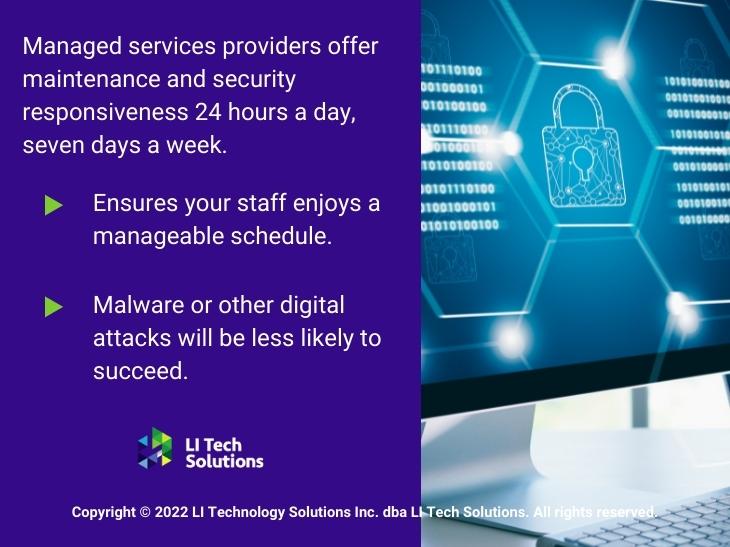
Resource Scalability
As your business grows, IT security scalability will become a more important concern. After all, the more business architecture you have and the more files you need to protect, the more robust your cyber security efforts need to be as well.
Fortunately, outsourcing your cyber security efforts to a managed services provider means scalability comes with the package. As your resource needs grow, your managed services provider will update your software, offer new security measures, and assign more people to your business.
Iterated Threat Detection/Responses
One of the big benefits of outsourcing your cyber security needs is improved cyber security results. As your managed services provider learns your business and the types of threats you encounter, it will:
- Continually iterate on its threat detection methods, enabling it to counter cyber threats before they become real issues
- Continually iterate on its response times and effectiveness. If a cyber threat does take hold, your managed services provider will be able to respond more capable as it gets more practice
In other words, the longer you stick with a managed services provider, the better security responses you’ll see across your organization. Remember, your business’s team can focus on other aspects of your organization all the while.
LI Tech: More Experienced Responses | The Best MSP in New York
On top of that, managed services providers employ experienced IT security professionals. If your business is not focused on IT security or does something completely different, the security specialists from a managed services provider will be far and away better for intercepting and fixing security issues.
This is more important than ever, especially given the increased sophistication of modern cyber threats.
Digital Transformation in Healthcare: MSPs’ Role in Long Island
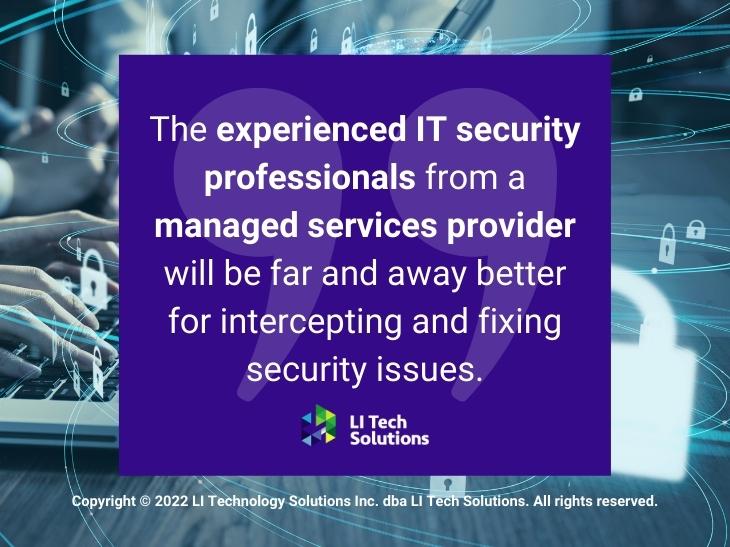
Regulatory Compliance Assistance
Perhaps most importantly, outsourcing cyber security also means outsourcing compliance with the CCPA, GDPR, and other current or prospective legislation. Many organizations need to be careful not to break these regulations, or else they may face heavy fines.
But compliance is an evolving thing. When you outsource cyber security, your managed services team will ensure that you always remain compliant regarding consumer data privacy and protection policies.
Outsource Cybersecurity with Long Island Tech Solutions | New York’s Best
Ultimately, outsourcing your cyber security needs is a great choice, even if your company works in the IT industry. Giving cyber security responsibilities to a specialized, 24/7 team could be the best thing you can do for your budget, your team management, and your goals.
Fortunately, LI Tech Solutions offers expert cyber security protection. If you need managed IT services in Long Island, we can help. Contact us today for more information!

